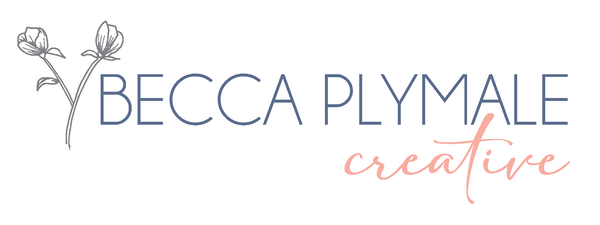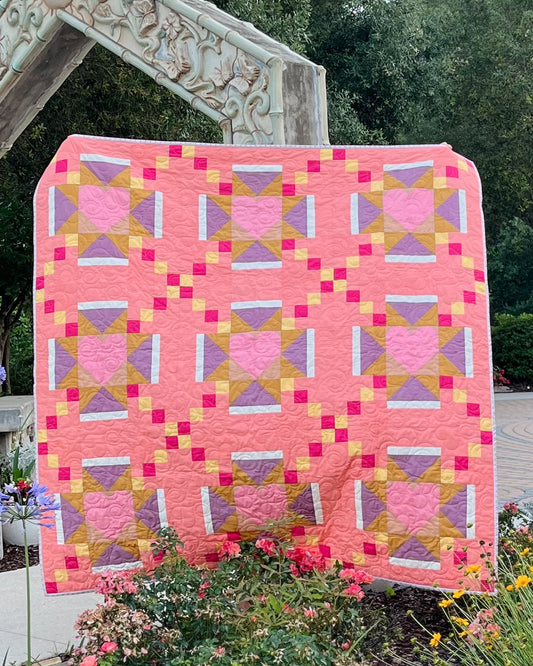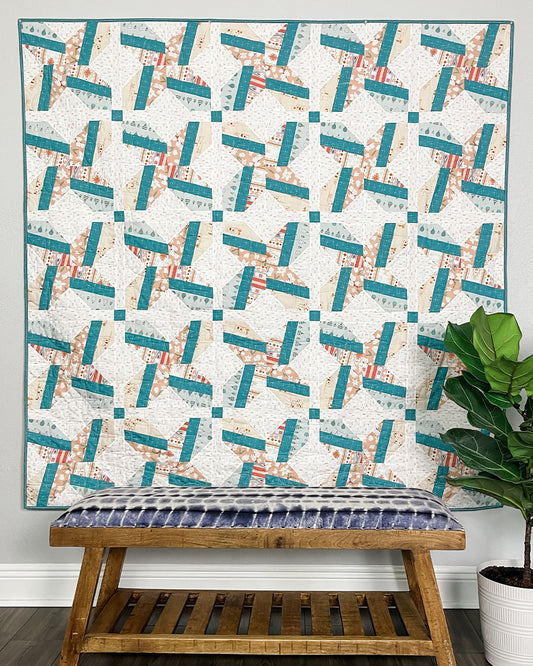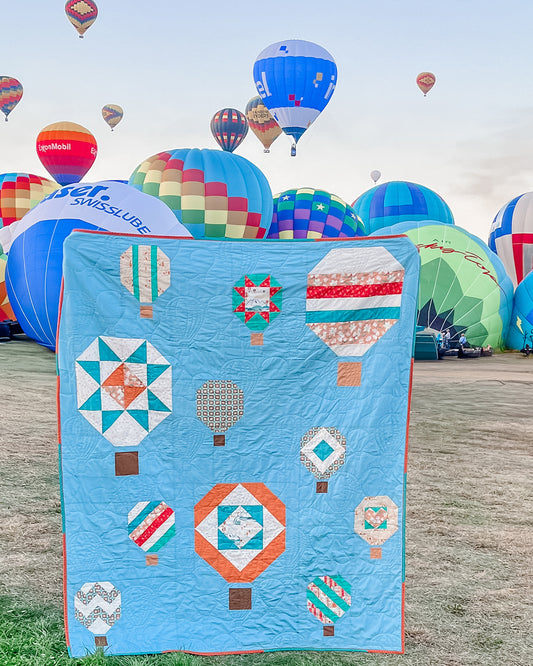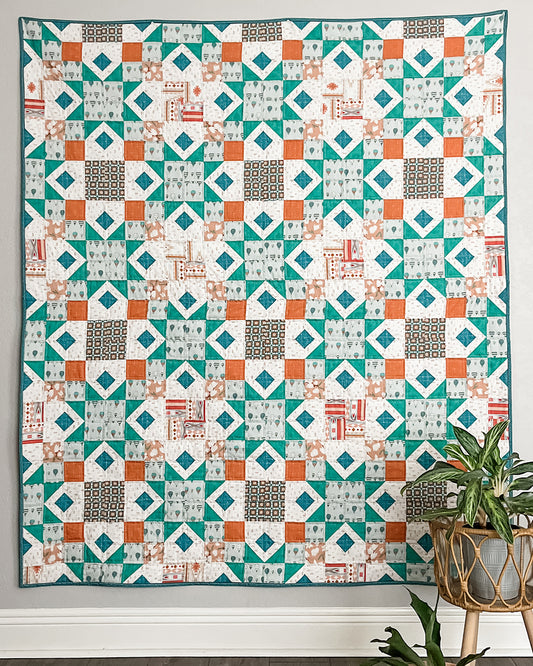How to Create a Flanged Quilt Binding: Add a Touch of Elegance to Your Quilts
Share
Flanged quilt binding is one of my favorite ways to add a little extra pop to the edge of a quilt! That tiny strip of contrast fabric gives it such a polished look while also making the final step of binding a bit more fun. Today, I’m walking you through exactly how to create and attach flanged binding to your next quilt. Let’s dive in!

What You’ll Need:
- Two contrasting fabrics (one for the main binding and one for the flange)
- Rotary cutter and mat
- Quilting ruler
- Sewing machine
- Coordinating thread
- Iron
- Wool Ironing Mat
Step 1: Pick & Prep Your Fabrics
For flanged binding, you’ll need two fabrics—one for the binding and one for the flange. The key is choosing colors that complement your quilt while still giving a little contrast so the flange stands out.
- Binding Fabric: Cut strips 1 1/2" wide.
- Flange Fabric: Cut strips 1 3/4" wide.
Cut both on the straight grain unless your quilt has curved edges—then you’ll want to cut them on the bias.

Step 2: Sew the Strips Together
Join all your flange strips end-to-end using a diagonal seam. Repeat with your binding strips.

Press the seams open to reduce bulk.
Place the flange and binding strips right sides together, aligning the long edges. Sew with a 1/4" seam.

Press the seam toward the binding fabric, then fold the entire strip in half lengthwise (wrong sides together). Give it a good press.


Step 3: Attach the Binding to Your Quilt
Line It Up & Stitch: Place the binding on the back of your quilt, with the flange side facing up. Align the raw edges of the binding with the quilt edge. Sew all the way around using a 1/4" seam.

Miter the Corners: When you get to a corner, stop sewing 1/4” before the edge, turn the quilt, and sew right into the corner.

Lift your presser foot and turn the quilt again so the binding points up and away at a 45-degree angle.

Then fold it back down, aligning the raw edges with the next quilt edge. Start stitching again right at that fold. Repeat for all corners.

Leave an Opening: Stop stitching when you have about a 15" gap between the starting and ending stitches. This will give you space to join the binding tails.

Step 4: Join the Binding Tails
There are so many ways to join binding tails, but I stick with a method that’s worked for me for years. Here’s the quick version, but if you want a video walkthrough, you can check it out here (skip to about 3 minutes in).
Fold both binding tails back, leaving a tiny 1/4" gap between them. Cut one of the tails right on the fold.
Use that cut-off piece to measure and trim the second tail the same way.

Open up both tail ends so they’re facing each other. Flip the right-side tail onto the left-side tail (right sides together) and rotate it 90 degrees so they’re perpendicular.
Draw a diagonal line from corner to corner on the top tail. Pin it in place, making sure the diagonal line intersects at the flange seams.
Sew along the diagonal line, trim the seam, and press it open.

Check that your binding fits snugly around the quilt, then finish sewing it in place.
Step 5: Finish the Front
Fold the binding over to the front of the quilt. The flange should peek out, creating that gorgeous little accent line.
Press the binding in place and miter each corner, pinning them to keep everything neat.

From the front, stitch right in the ditch between the flange and binding fabric. This will secure the binding in place while keeping the stitching nearly invisible.

When you reach a corner, pivot and keep stitching until you’ve gone all the way around.
A Few Tips for Success:
-
Use a walking foot to keep the layers from shifting.
-
Give everything a good press before sewing—it makes a huge difference.
-
Test your stitch length and tension on a scrap piece before you start stitching the binding to the quilt.

Flanged binding is such a fun way to finish a quilt, and once you try it, you might never go back to regular binding! It’s an easy way to add a little flair while still keeping things neat and professional. Give it a go and let me know how it turns out!
Happy quilting!


